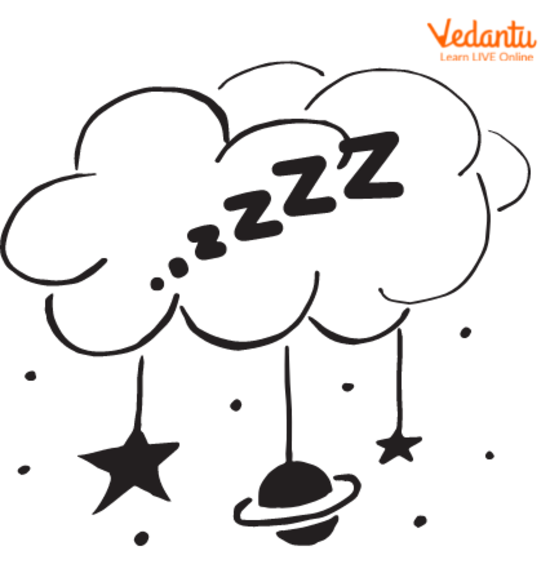




I Have a Dream Speech

Defining what is “I have a dream”
So, what was Martin Luther King's dream? In "I Have a Dream," Martin Luther King Jr. describes the history of racial inequality in America and urges his audience to keep their nation according to its fundamental ideals of freedom, justice, and equality.
King reminded the 250,000+ people at the 1963 March on Washington that it's been over a century since the Emancipation Proclamation ended slavery in America. Black Americans are officially free from slavery but aren't accessible in any broader sense. "Chains of prejudice" and "manacles of segregation" continue to characterise the Black experience in America. King says Black Americans should "pay the cheque" they were given a century ago & demand "freedom and justice." King believes there's no time for a gradual solution to racism; it's the "sweltering summer of the Negroes' rightful dissatisfaction", and the nation is boiling.
King calls for "whirlwinds of insurrection" but cautions civil rights activists not to let "bitterness and hate" guide them. Their fight for justice can't "degenerate into violence." Instead, King tells his audience to stay in the "majestic heights" of nonviolent struggle and not regard white friends as foes. King believes that all races must unite and uphold peaceful beliefs to achieve genuine justice.
King realises the lengthy and terrible challenges many of his listeners have undergone; he knows civil rights activists have been attacked, humiliated, and jailed. Still, he pushes them to return home after the march, whether to the scorching South or the "ghettos of northern cities," confident in the importance and promise of their cause.
Then King describes his ambition for America: one day, it would "carry out all the real meaning of its credo" and ensure that "all men are made equal." He hopes that even his children will be raised in a society in which they are assessed "on the content of their character."
King challenges his audience to carry their trust in significant change back into their hometowns. They must fight, face jail, and "stand up for freedom" together to make America great. He begs for liberty to ring out from Colorado's tallest mountains to Georgia's Stone Mountain to "every hill & molehill of Mississippi." When America lets freedom resound over its hills and valleys, he continues, "black men and white men, Jews & Gentiles, Catholics and Protestants" may sing the ancient Negro spiritual: "Free at last, free at last; thank God Almighty, they are free at last."
What Exactly Was the Point of Martin Luther King Jr.'s "I Have a Dream" Address?

The Point of Dream Speech
The "Dream" speech that Martin Luther King Jr. delivered was a rallying cry for more equality. So, answering the question, what issues does Martin Luther King's speech address? It pointed out the problems with the United States of America and outlined the steps that should be taken to improve the country. A recurrent idea that emerged throughout the presentation was the significance of ensuring that all individuals are dealt with somewhat.
Which Economic Metaphor does Dr King Use Throughout "I Have a Dream?"

Martin Luther's Speech I have a Dream
In his remarks, Dr King often used metaphors. For example, he compared the unfair economic conditions many people were subjected to with a bad check in his "Dream" address. King argued that the United States economic structure had wholly disregarded the needs of low-income people and African Americans.
The last 60 years have unfortunately only seen a worsening of economic disparity in the United States and throughout the globe. As a result, there is a significant gap between the richest and the rest of the population. There are a lot of individuals throughout the globe who make very little money. Pay growth has scarcely moved in the last half-century compared to the inflation rate for those lucky enough to hold secure employment.
Millions of industrious individuals who live paycheck to paycheck and cannot save or invest for the future have closed the door that once led to secure life in the middle class.
Conclusion
Although those above are the only known instances of King discussing economic matters in his writing or public speeches, he did it on several other occasions. Before his death in Memphis, Tennessee, on April 4, 1968, MLK gave a speech in favour of striking workers at Mason Temple.
His influence is unquestionable, even if some people don't agree with his ideals or the concepts underlying the civil rights movement. Through his writings, lectures, and teachings, Dr King shifted the national conscience by connecting the economic system, the injustices it enacts, and the rights of all Americans. Because of this and much more, MLK Day has come to represent as a national holiday in his honour.
FAQs on Martin Luther King's Dream: An In-Depth Look
1. What was the central 'dream' that Martin Luther King Jr. described in his famous speech?
Martin Luther King Jr.'s central dream was a future America free from racism and discrimination. He envisioned a nation where his children would be judged not by the color of their skin, but by the content of their character. His dream was for equality, justice, and brotherhood to become a reality for all citizens.
2. What are the main ideas or themes in the 'I Have a Dream' speech?
The speech explores several important themes, including:
- The call for freedom and justice: It highlights the continued struggle for civil rights despite the promise of emancipation.
- The urgency of the moment: King emphasised that the time for gradual change was over and immediate action was needed.
- The vision of racial equality: The core of the speech is the hopeful vision of a society where all races coexist in harmony.
- The importance of non-violent protest: He urged his followers to fight for their rights with dignity and discipline, without resorting to hatred or violence.
3. Where and when was the 'I Have a Dream' speech delivered?
The 'I Have a Dream' speech was delivered on August 28, 1963. Martin Luther King Jr. spoke from the steps of the Lincoln Memorial in Washington D.C. during the historic March on Washington for Jobs and Freedom, where over 250,000 people gathered.
4. What makes the 'I Have a Dream' speech so powerful and memorable?
The speech's power comes from a combination of factors. King's passionate and rhythmic delivery, known as his oratory skill, captured the audience's attention. He used powerful rhetorical devices like repetition (anaphora), especially the phrase 'I have a dream,' and vivid metaphors (like America giving a 'bad check'). These elements made the message not just understandable, but deeply moving and unforgettable.
5. How did the 'I Have a Dream' speech affect the Civil Rights Movement?
The speech had a massive impact. It brought widespread attention to the goals of the Civil Rights Movement and is credited with helping to build momentum for the passage of the Civil Rights Act of 1964. It served as a powerful rallying cry, unifying supporters and solidifying Martin Luther King Jr.'s role as a key leader of the movement.
6. What is the importance of the repeated phrase, 'I have a dream'?
The repetition of 'I have a dream' is a rhetorical device called anaphora. Its importance lies in how it builds emotional power and rhythm, turning the speech into a powerful sermon. Each repetition introduces a new aspect of his vision, making the dream feel more concrete and achievable. This phrase transformed the speech into a hopeful anthem for equality.
7. What is the difference between King's 'dream' and the reality for African Americans in 1963?
There was a stark difference. King's 'dream' was of a nation of equality and justice. However, the reality in 1963 was one of widespread, institutionalised racism. This included segregation in schools and public places, voter suppression that denied them political power, and the constant threat of violence. The speech highlighted this gap between the American ideal and its harsh reality.
8. Besides race, did Martin Luther King Jr.'s 'dream' address any other issues?
Yes, while racial equality was the central focus, the speech also touched upon economic justice. The full name of the event was the 'March on Washington for Jobs and Freedom.' King spoke of the 'chains of discrimination' and the 'lonely island of poverty.' His dream included a future where economic opportunities were available to everyone, regardless of their background.























